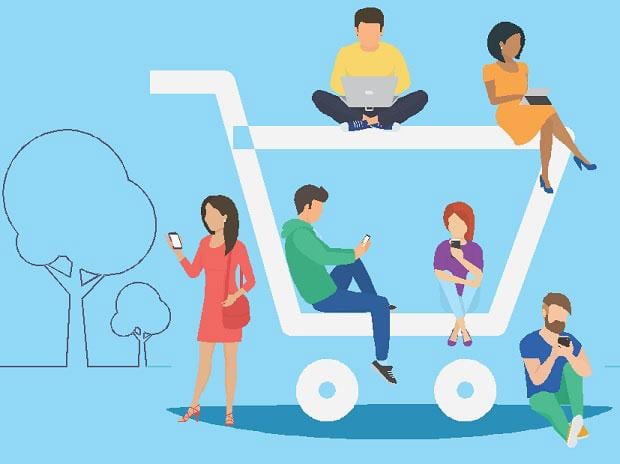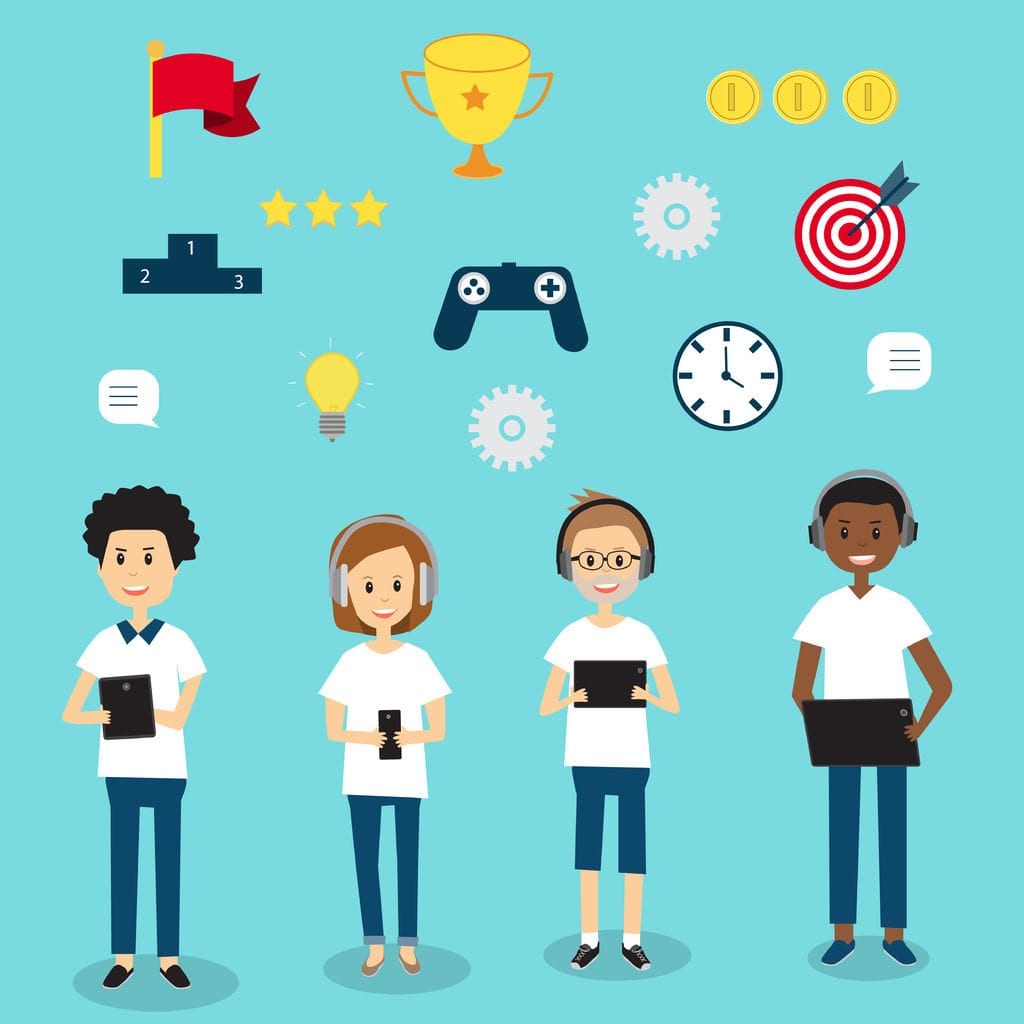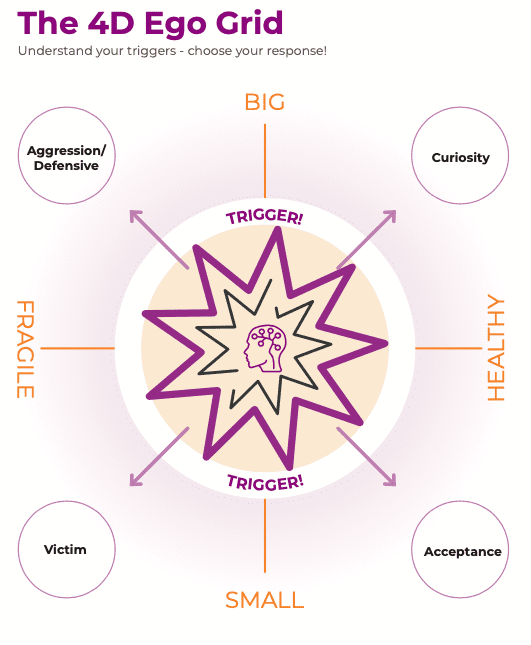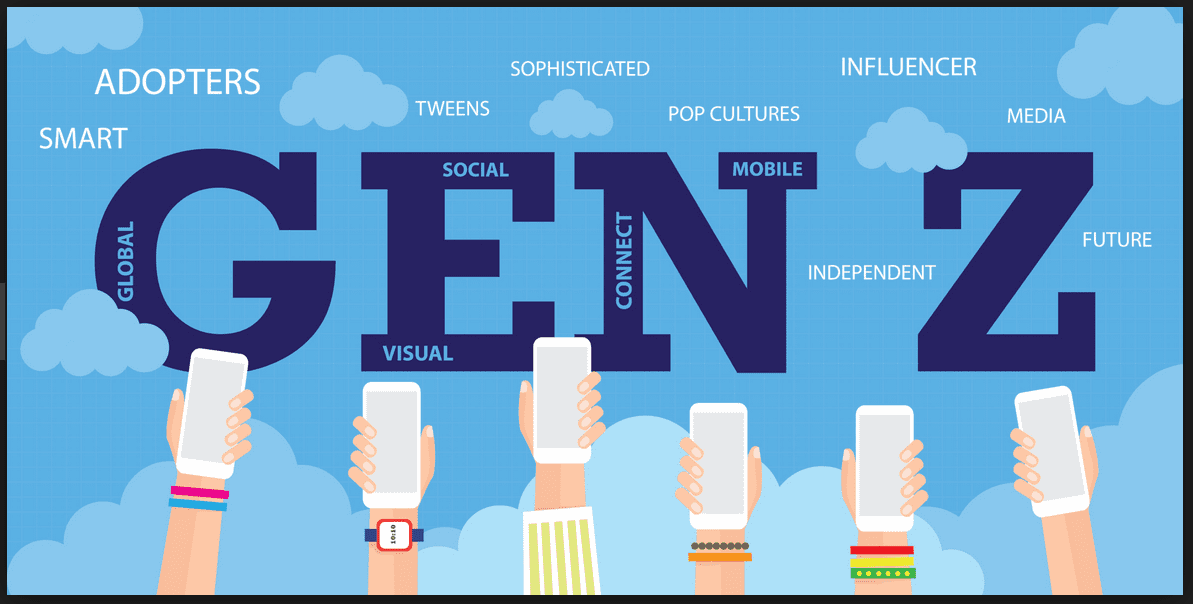The corporate world has been abuzz with talk about how to train the millennial generation for a while now. However, times are changing and if we want our businesses to stay ahead of the curve, it’s time we think ahead to the next generation that is growing up and rapidly entering the workforce: Generation Z.
Generation Improviser
Born after the mid-’90s and raised in the 2000s, Gen Z already makes up 24% of the workforce. Radically different from millennials, Gen Z “has an entirely unique perspective on careers and how to define success in life and in the workforce” (Deloitte). They’ve grown up during a time of great economic and political instability and are driven towards finding stable and secure jobs.
However, with the COVID curveball- that has hit us all – has come an even stronger reminder of the importance of a flexible, adaptable and systems-orientated leadership. With an uncertain future and the speed of change accelerating faster than ever before, no generation has needed these leadership qualities more.
So how might we encourage these qualities in Generation Z? And gear our training towards Gen Z and their older- millennial- siblings? We can start to look at what’s new and what’s changing. What are the similarities between Millennials and Gen Z and what are the differences that make Gen Z uniquely different? And what can we learn from these similarities and differences to maximize the talent and energy of our Gen Zers in our workplaces?

Similarities to Millennials:
1. Flexibility of Work
One Deloitte study found that 75% of Gen Zers were interested in inhabiting numerous roles within a company.
At 4D we talk a lot about range- and how- as human beings- we have so much more range than we often realise. And quite often we only use a very small percentage of our range, particularly in our working lives. Whilst this ‘autopilot’ range can serve us well most of the time, it can leave us feeling disconnected in our work and boxed into a certain ‘role.’ So how might you bring a sense of breadth to your Gen Zers role and responsibilities? Encourage them to stretch. If you hear the words ‘that’s not me’ or ‘I’m not very…’ then you know there’s some limiting self-talk going on. And at 4D we believe the unique range of each human being is well…infinite. One only has to look to the world of theatre and study really good actors, to understand that they’re not simply placing a character on top of themselves but stretching into a different part of who they are. And as human beings, we can do the same.
So, it may not even be necessary for an external role change. How can you motivate a Gen Zer on your team to step into a different internal part of self? Such as their risk-taking part, their organising part, their diligent part, their leader part or their persevering part. Or maybe it’s their inner joker, or serious player or the part of them that sees possibilities rather than problems. So, that they can stretch their sense of self within the specs of that job.

2. Positive workplaces
Studies have shown that a positive work environment is important to Gen Z. Up to 70% will look for workplace reviews on websites such as ‘Glassdoor’ before applying for a job.
A study by Deloitte found that Gen Zers are ‘likely to be loyal to organizations with a positive workplace culture.’
Now, of course, it can be hard to stay positive when there’s a lot of pressure on at work. Even more so during 2020! However, as leaders, we must celebrate successes (however small) because of the positive impact of well…positivity! There are numerous psychological and physical benefits to positive environments and emotions like reduced anxiety and a stronger immune system.
Relationship expert John Gottman has worked out that the golden ratio for successful relationships (this applies for both personal and professional relationships) is 5:1: 5 positive interaction to every negative interaction. A positive interaction doesn’t have to be a grand gesture, it could be as simple as saying “good morning” to your colleagues. Keep filling your emotional bank account, so that you’ve balanced out any negativity for when it does inevitably arise. Because this isn’t about avoiding negativity. If you take the ratio too high- approximately 13 positives to one negative- trust erodes within the relationship. This is because negativity and truth aren’t being expressed.
So why- given all the benefits- can it be difficult to stay positive?
Due to the brain’s negative bias, the brain prioritises negative experiences over positive ones because negative experiences pose a chance of danger. This was useful for our ancestors on the savannah – being negatively biased quite literally kept you alive. But now this isn’t so useful. So, we need to update this old operating system, so that it can better serve us and our teams. As leaders how can we inject more positivity into a stressful day? An easy way to do this can be to shift the focus at the start of a meeting. “Which of your colleagues would you like to celebrate this week?” or “What’s one thing you’re proud of?” Simple check-in questions like this start to shift the focus of the team. And what you focus on ultimately shapes your experience of life.
Do this at the start of your team meeting for two months and see what happens for you- and the Gen Zers- in your team.

3. Love of Technology
Gen Z has never grown up in a world without the internet, and so technology has become inextricably intertwined with their lives. They are digital natives and have grown up with a smartphone and social media. Which- as the hair-raising Netflix documentary ‘The Social Dilemma’ suggests- has its benefits and its challenges: “Social media starts to dig deeper and deeper, deeper down into the brain stem and take over kids’ sense of self-worth and identity.” So, whether we agree with it or not, the majority of Gen Zers will- to a certain degree- recognize themselves through the lens (or reach) of an online profile. And this is probably true for any of us with some kind of online presence, whether that be Tik Tok, Twitter or Instagram.
However, social media is not all negative – connecting and communicating virtually can also be incredibly creative. As long as we are conscious and at choice about our use. One only has to look at apps like Snapchat or features like Instagram stories to consider the breadth of communication styles on offer. All these different ways of communicating engage a much wider collection of thinking styles and can empower a wider variety of individuals to have impact without having to say a word.

So, how might you capitalise on Gen Zs fluency and ease with technology? Bring some of these tools into your team meetings and training. At 4D we’ve been taking advantage of some fantastic virtual tools to bring different learning styles and creativity options into our sessions. A 4D favourite right now is Menti– an online polling platform, that has participants voting in real-time, and watching as their votes anonymously show up on the screen. Polling tools like Menti can help you to efficiently scan the team, without having to get a verbal check-in from everyone. With a quick poll, everyone’s ‘voice’ in the room gets heard, without them having to say a word. It also gives you- as the team lead or host- a better sense of what is going on with the whole team, as opposed to just those with the loudest voices.

Differences to millennials:
1. Highly Competitive
Gen Z is arguably more success-orientated than any other generation. They are driven and determined and also, more vulnerable to ego triggers.
Now the ego gets a bad rap but we all have an ego. And we can talk about the ego being big or small but also in terms of being healthy or unhealthy. One of the challenges of needing to be right, sounding clever, or solving a problem can be that an unhealthy ego gets in the way.
- An UNHEALTHY Ego- is a fragile ego, that feels under attack. The ego believes others have the power to diminish it, so self-punishes or tries to diminish someone else’s ego in order to protect itself.
- A HEALTHY EGO- is solid and intact. It isn’t dependent on other people to be whole and safe. IT might enjoy praise or win, but it’s not dependent on these things and won’t be devastated if they don’t happen. With a healthy ego, you will be strong, confident and resilient in your abilities, honest about your talents whilst being available to grow, open to constructive feedback, curious in the face of conflict and able to acknowledge mistakes with a clear mind and heart.

So thinking about an ego triggering situation that feels unfair to you. How might you react if you were operating from a…
- Low-Unhealthy Ego state- Victim
- High- Unhealthy Ego State- Aggression
- Low- Healthy Ego State- Acceptance
- High- Healthy Ego State- Curiosity
Our patterned reactions are there for a good reason. They’re our instinctive reactions and defences that we’ve adapted to keep us safe. So, this isn’t about criticising our triggers- this is about becoming conscious of our default reactions to these triggers so that we can choose to respond differently- as opposed to reacting unconsciously. The difference between the world happening to you and you happening to the world.
Consider how you can model the healthy ego (in particular the high healthy ego state) by practicing leaning in with curiosity. Maybe you get a tricky question during a presentation or push back from a client- rather than defend yourself or the project or insist you are ‘right’ – how might you lean in with genuine curiosity, and encourage a culture of curiosity for your Gen Zers?
2. Orientated towards job security and salary
Whilst millennials were stereotyped as chronic ‘job hoppers’ Gen Z are more interested in long-term job security and stability. Having grown up during a time of great economic and political volatility (they were only 11 when then the 2008 great recession hit) they are interested in finding steady, secure jobs.
However, within these stable and secure jobs, Gen Zers are looking for autonomy. The freedom to work when they want to work, as opposed to fitting their lives around a 9-5 schedule. In his book ‘Drive: The surprising truth about what motivates us’ Daniel Pink writes: “Human beings have an innate inner drive to be autonomous, self-determined, and connected to one another. And when that drive is liberated, people achieve more and live richer lives.”

In 2020, autonomy has- for many people- been delivered in overdrive with the global pandemic this year. Without the geography of an ‘office’ and the presence of a physical boss, autonomy is perhaps less of a concern than is accountability. So, how can we create a sense of accountability- without intruding on a person’s autonomy? We can encourage self-accountability. Team check-ins over zoom or team spaces where colleagues feedback to their team are a great way of keeping virtual teams connected whilst also fostering a sense of personal purpose and pride in the individual’s work.
Recognising that everyone on your team is a voice of that team or ‘system’ is a powerful way of empowering people- particularly the younger members of your team or organisation. Your grads and Gen Zers will benefit greatly from feeling respected and trusted, through autonomous work and a model of positive reinforcement and self-accountability.
3. Entrepreneurial
Gen Zs are entrepreneurial in spirit and are often working on a side hustle, whether that be a small craft business they run on Etsy or a part-time photography gig. The entrepreneurial and the improviser mindset have a lot in common- and both have the potential to make great leaders. So how can we release this leadership capacity within our Gen Zers? Invest in training Gen Z early, particularly those identified as having high potential. Whilst they might just be at the start of their corporate careers, they come with a unique perspective on our interdependence with technology and will be the generation to lead us into a century of development and change like no other. Help them become great communicators so they can share their unique perspectives with your wider business and customers, with a sense of gravitas and credibility.

This also plays into Gen Z’s desire to find workplaces with a diversity of rich learning experiences and opportunities for personal growth. Whilst salary is important to Gen Z, they are still motivated by work satisfaction. According to a Deloitte study: “Gen Z, employers must be ready to adopt a speed of evolution that matches the external environment. That means developing robust training and leadership programs, with a real and tangible focus on diversity.”
For Gen Z, actions speak louder than words, which is what we’re all about at 4D Human Being. Helping people to mind the gap between how they think they’re being and how they’re coming across so that they can consciously create the impact they choose.
Are your Gen Zers happening to the world or is the world happening to them?
Our personal impact programs empower the Gen Z workforce along the path towards conscious communication and an awareness that they are always at choice.


